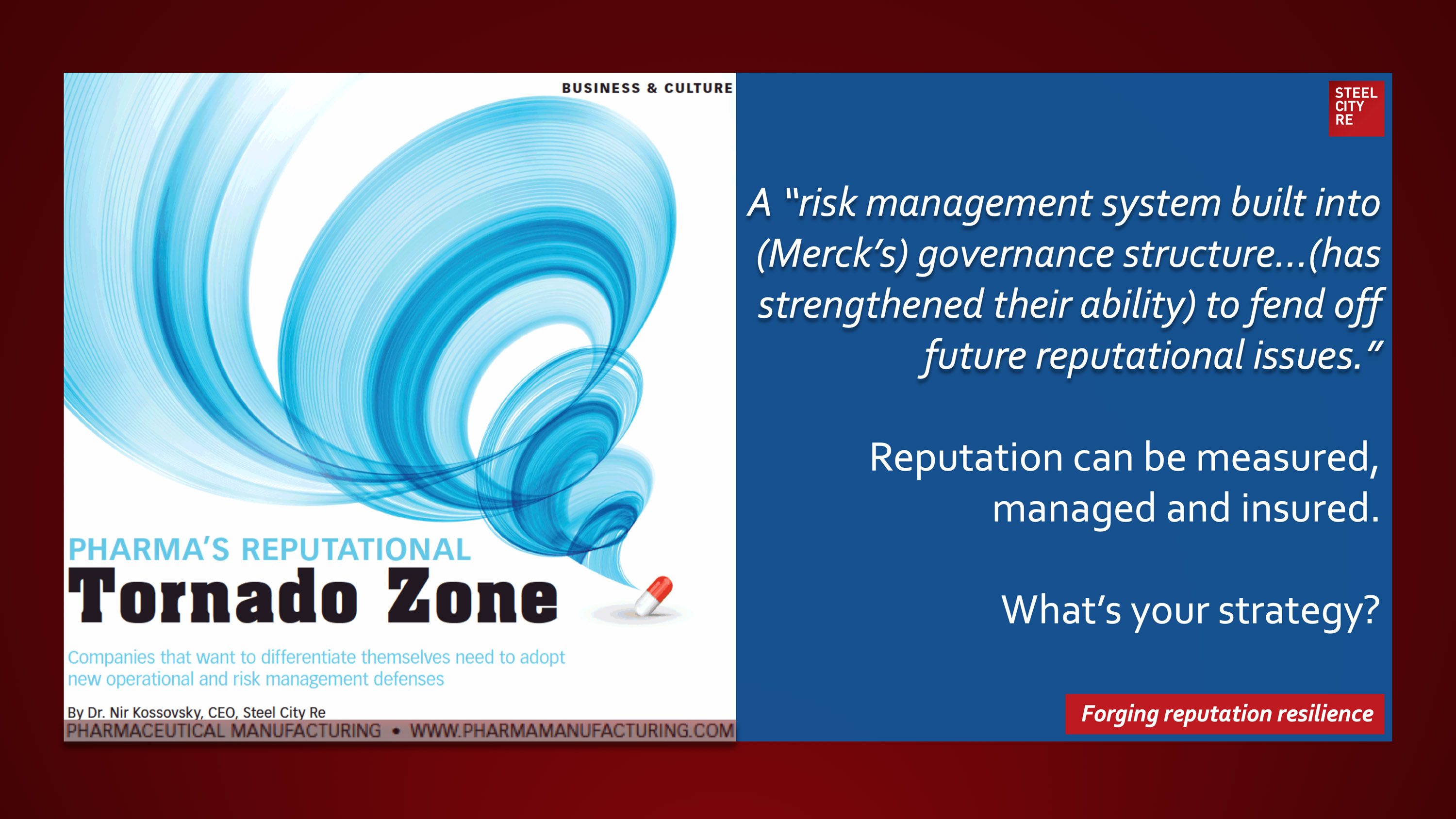Unfortunately, the industry’s reputation for corporate governance and corporate practices do not share that insulation and, in fact, the industry has been a popular target for many years among politicians, the media and public policy activists.
The reputation of the pharmaceutical industry runs along two tracks. Because of a long and positive record supported by FDA regulation, its reputation for product safety is very strong. Because of that reputation, most of us accept the notion that quality or safety failures, when they occur, are anomalies and not reflective of overall product safety within the industry. In fact, stakeholders have come to expect universal safety in the products of an ethical pharmaceutical industry to such an extent that any disappointment inevitably leads to the pile on of litigators, regulators and bloggers.
In pharma, just like other industries, the most prevalent operational failure underpinning reputation risk is an ethical breach by a rogue who decides to violate clearly stated policies. We’ve seen many examples of how the actions of these bad players can be devastating for their companies and for the reputation of the entire industry. Years of ethical behavior can quickly be overshadowed by one company being accused of price gouging or by the behavior of an individual like former Turing Pharmaceuticals CEO, Martin Shkreli. Reputation can also be seriously damaged by a societal issue like opioid abuse, which, in this case leads to litigation about what may or may not have been certain sales practices at a few companies.
June 28, 2018
Pharmaceutical Manufacturing
A “risk management system built into (Merck’s) governance structure…(has strengthened their ability) to fend off future reputational issues.”
Reputation can be measured, managed and insured.
Reputations are valuable strategic intangible assets. Threats to these assets⏤ enterprise reputation risks, often mislabeled “brand risks” ⏤ need to be managed, and management needs to be overseen through reputation risk governance lest reputational damage or reputational harm result in long-tailed go-forward losses in economic value and/or political power. Because these intangible risks arise from the interplay of stakeholder expectation, experiences, and media amplification, parametric insurances for intangible asset risks, for reputational value, for reputational harm, and for reputation assurance help mitigate risk by telling a simple, convincing and completely credible story of quality reputation governance to stakeholders. This story telling effect is the expressive power of insurance complementing insurance’s better known instrumental power of indemnification.
Risk management, risk financing in insurance captives, and risk transfer through reputation insurances comprise the constituent elements of a comprehensive solution. What’s your strategy?

